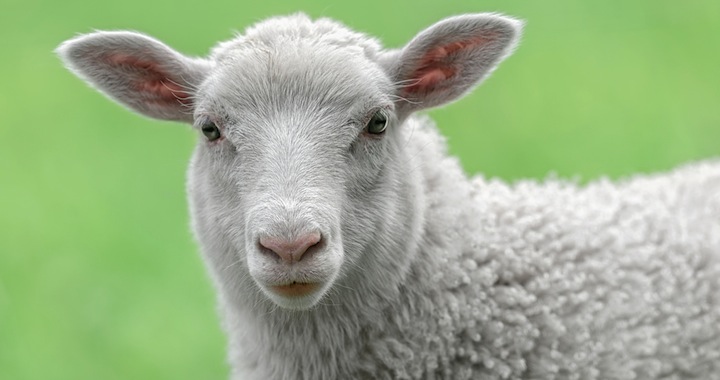The Jews and Muslims in Britain are up in arms. And it’s not because of one another. They’re oddly united, protesting the same attack on their religious freedom.
There is a new head vet in the UK, John Blackwell, and he has said, before even taking office, that the ritual slaughter of animals in both Halal and Kosher practice is inhumane and cruel to animals. In both rituals, a very sharp blade slits the animal’s throat in one smooth motion, severing arteries and nerves. The idea is that the animal is killed as swiftly as possible, with the least amount of suffering possible. But, goes the argument as posed by many vets and animal rights activists, that was the least suffering possible in the Ancient World. Today, there are various ways to stun an animal, so it is not sensitive to pain at the moment of its death. “I don’t think an outright ban is a long way off. There is enough of a view that this practice is inhumane and causes suffering at the time of death, ” Blackwell commented.
There are two points here. First is the reminder that Islam and Judaism are actually closely related, derived from the same part of the world, that Islam sees itself as the successor to Judeo-Christian heritage, the great inheritor of the Abrahamic covenant. Christianity took a detour from its theological cousins when it abandoned food rituals in favour of accepting Gentile practice. And so, its history of food preparation has followed the progress of Western science and industry, in some ways perhaps better, in some ways certainly horrific, in the case of battery hens and other factory farming methods.
Related: The “God” of the Gut – Animals, Faith & Gluttony
Secondly, we have a conflict between 21st century morality and ancient religious custom. There has long been a practice in the West of accommodating religious beliefs. This has created problems from time to time, with some people claiming that too much freedom risks throwing the West into the confines of Shariah law (with little understanding of what Shariah law is generally, or of its specific variations between countries and sects).
What we develop is parallel cultures, with religious practice varying from mainstream practice. This has long been the tradition in the Jewish world, where for the vast majority of its history, Judaism has had to resist the influences of various dominant, non-Jewish cultures, such as Roman, Russian, Babylonian, German and American. One of the wonders of the Jewish people is how they have managed to retain their culture for 3000 years, where most similar faiths have died out, assimilated or been overrun.
For Christian and Muslim culture, they have long tended to be the dominant culture among their nations and peoples. So when there is a conflict between the teachings of the dominant culture, and the Bible or Koran, the conflict is more abrasive, more unexpected. Jewish culture has tended to ask for minority exceptionalism whilst still respecting the dominant culture, simply out of necessity and habit. Christianity and Islam have often not had to make those sorts of accommodations, and so when it is suggested they do, there is resistance.
All of this got me thinking about when Christianity is not the dominant culture, what then? British and American culture is informed by both Christian and secular humanist values. The sense of revulsion from some about animal slaughter is a product of that culture, and there tends to be little defence of it from Christian or humanist circles.
But what should our attitude be as we move from dominant past to a possible minority future? What can we learn about this battle between dominant culture and religious minority? What elements of popular culture will drift from a dominant Christian to a secular, non-Christian viewpoint?
The current fight over marriage is such a conflict. Whatever your attitude, the essential dynamic is between a traditionalist Christian view vs a liberal, secular view. While you might feel that same-sex marriage is defended or left ambiguous in scripture, there is no denying that adult, monogamous heterosexual marriage is our Christian, cultural heritage. As for the matter of scripture, the Jewish ritual slaughter of animals, shechita, is not articulated in scripture. Its specific practice is based on custom, history and heritage.
Also by John: Sympathy for the Devil
So, what of our customs, history and heritage? A big question Christianity needs to ask itself is how important our heritage is. In the absence of Christian dominance, we may find many of our customs replaced by those outside of ourselves. When they are, we have an important question to ask:
Is the custom worth saving?
or
Is scriptural truth separate from custom?
From one point of view, we cling to our history as God’s Word expressed over time. From the other, we cling to the word of God as timeless and independent from the world. From one point of view, we continue to argue our case that our worldview is right, and proper, and should continue to dominate. From the other, we possibly take a more Jewish point of view, and settle into a separate niche, preserving our sense of right in the midst of worldliness.
The choice is ours. The time for the debate is now, while we are still in a position to have it.

